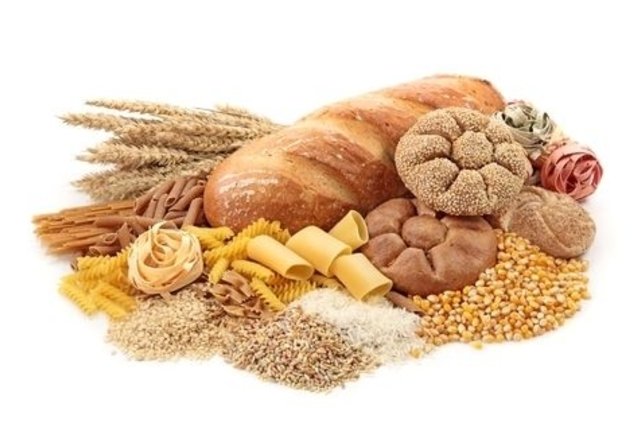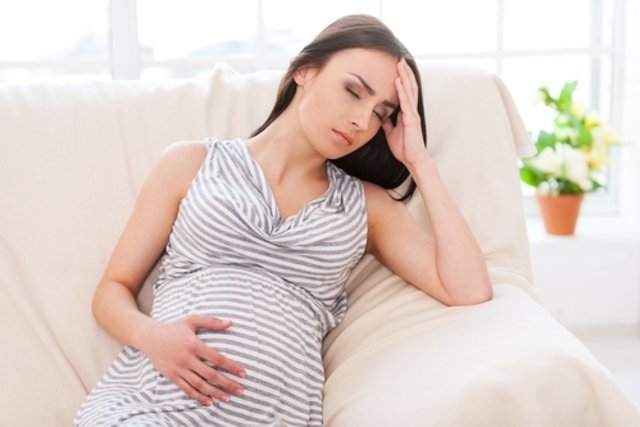Discomforts at the beginning of pregnancy, such as nausea, tiredness and food cravings, arise due to the hormonal changes characteristic of pregnancy and can be very uncomfortable for the pregnant woman.
These changes are important to prepare the body for pregnancy, childbirth and breastfeeding, but part of the discomfort is due to the woman’s emotional system, which is normally shaken due to a mixture of happiness and worry. But there are some simple strategies that can help deal with each situation, without harming the woman or the baby.
1. How to relieve nausea
To alleviate nausea during pregnancy, you can buy an anti-motion sickness bracelet at the pharmacy or in online stores because they put pressure on a specific point on the wrist and use reflexology to combat nausea. Another strategy is to suck on ginger candy. Other tips include sucking on a lemon popsicle, avoiding eating fatty or seasoned foods and eating small meals every 3 hours.

Motion sickness bracelet
Nausea tends to be common at the beginning of pregnancy due to hormonal changes, which increase the acidity of the stomach, and the growth of the uterus, which pushes the stomach upwards, tending to disappear around the 3rd or 4th month of pregnancy.
2. How to relieve tiredness
To alleviate fatigue during pregnancy, pregnant women should rest during the day, whenever possible, and drink orange and strawberry juice, as they are rich in vitamin C and iron, which provide energy and reduce tiredness.
3. How to relieve a headache
To relieve headaches during pregnancy, a great tip is to apply a cold water compress to your forehead or put about 5 drops of lavender oil on your pillow, as lavender has an analgesic effect.

Eat more fiber
Headaches during pregnancy can arise due to hormonal changes, tiredness, low blood sugar levels or hunger, tending to decrease or disappear in the second trimester of pregnancy.
4. How to ease cravings
Strange food cravings during pregnancy generally reflect a nutritional deficiency in the pregnant woman and can occur in any trimester of pregnancy. To alleviate strange food cravings during pregnancy, nutritional supplementation should be recommended by your obstetrician or nutritionist.
5. How to relieve breast tenderness
To relieve pain in the breasts, the pregnant woman can wear a bra suitable for pregnancy, which is comfortable, with wide straps, which supports the breasts well, which has a clasp to adjust the size and which is iron-free.
Pain and increased sensitivity in the breasts can begin to be felt by pregnant women from the first trimester of pregnancy due to hormonal changes that cause the pregnant woman’s breasts to increase in size and become firmer and more sensitive, which can cause pain.
Fatigue during pregnancy is common in the first months of pregnancy due to physical and hormonal changes that cause greater energy expenditure, causing tiredness.
6. How to relieve constipation
To alleviate constipation during pregnancy, drink about 2 liters of water per day, do regular physical exercise, such as walking or water aerobics, and increase your consumption of foods rich in fiber, such as mango, papaya, oats, pumpkin, oranges, kiwi and chayote. See also: What to do when you experience abdominal pain during pregnancy.

Constipation during pregnancy can arise due to hormonal changes and pressure from the uterus that cause digestion to slow down, which can last until the end of pregnancy.
7. How to relieve gas
To relieve gas during pregnancy, pregnant women can take 1 or 2 capsules of activated charcoal per day, at least 2 hours apart after taking any medication recommended by their doctor or nutritional supplement. Other measures to relieve flatulence include drinking fennel tea, as this medicinal plant has anti-spasmodic properties, as well as avoiding foods that cause flatulence.
Flatulence during pregnancy is also related to the fact that intestinal transit becomes slower, facilitating the production of gases, which can last until the end of pregnancy.
8. How to relieve hemorrhoids
To alleviate hemorrhoids during pregnancy, an excellent solution is to take a sitz bath with warm water or apply a cloth soaked in witch hazel tea to the anus, as this medicinal plant has an astringent and anti-inflammatory action. Another tip to alleviate the pain, swelling and itching of hemorrhoids is to use an ointment for hemorrhoids for use during pregnancy, such as Ultraproct or Proctyl, under the guidance of your obstetrician.
Hemorrhoids during pregnancy are related to increased pressure in the pelvic region and an increase in the amount of blood circulating in the anal region, with constipation increasing the risk of hemorrhoids.
Find out how to alleviate other discomforts that may arise at the end of pregnancy in: How to alleviate discomfort at the end of pregnancy.
Check out these and other tips in the following video:

Sign up for our newsletter and stay up to date with exclusive news
that can transform your routine!
Warning: Undefined array key "title" in /home/storelat/public_html/wp-content/plugins/link-whisper-premium/templates/frontend/related-posts.php on line 12
Warning: Undefined array key "title_tag" in /home/storelat/public_html/wp-content/plugins/link-whisper-premium/templates/frontend/related-posts.php on line 13




